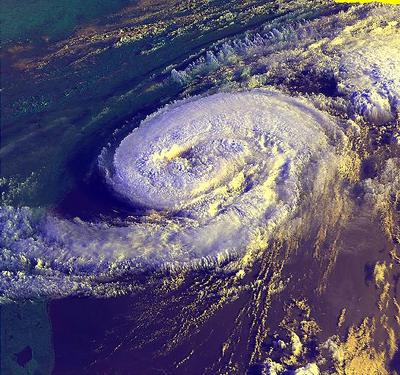Prophets and Hurricanes

Instant Prophecy?
Seems to me that Katrina exposed some unpleasant truths about us. One leading conservative international magazine called Katrina "the shaming of America."
A long time ago most Americans believed this kind of catastophe was a sign of divine judgement on the nation.
Keeping that biblical tradition alive, within hours of 9/11 quite a few prominent conservative Christians attributed that attack to the nation's acceptance of "activist" judges and civil rights for homosexuals and any position they don't agree with culturally and politically. We got plenty of instant prophecy.
Those folks are strangely silent this time around. And our evangelical president is publically accepting responsibility for something for the first time in his presidency. I welcome both developments.
I hope both he and they are acting out of a newfound humility in the face of experience. I'm confident they can all read and interpret poll numbers too, however. All of us have mixed motives, so who knows where the change of approach is coming from?
Whatever their motives, maybe this whole thing will help the righteous to avoid knee jerk "prophetic" interpretations.
Thoughtful Prophecy
In spite of popular conceptions that prophecy is about predicting the future, in the Christian tradition prophets mostly demonstrate to nations how they've fallen short of living out their deepest values and convictions. And then they call the people back to their best and deepest selves. We've been blessed with some very significant prophetic figures in our nation's history
Very few people believe anybody has a gift of prophecy anymore. Too bad.
But whether you believe in a more literal interpretation of prophecy or not, an event like Katrina can open people's eyes to things they normally prefer to ignore.
In my next couple of posts I want to explore "race, class, and Katrina." We've got other challenges beyond race and class in America, but they've both gotten short shrift in our current cultural and religious climate. And I think the aftermath of the hurricane exposed both of them in a new way.
I also think a prophetic response, whether you're religious or not, takes some time. Depth of perspective and useful practical responses don't come easily.
I look forward to hearing your thoughts, feelings and ideas.


4 Comments:
This comment has been removed by a blog administrator.
i have the same view on katrina. www.brownking.blogspot.com
Actually I did hear that some "Christians" were attributing Katrina as a judgement for a gay pride parade that was supposed to take place in Baton Rouge...they may be quieter, but they will never disappear. Prophecy is an interesting thing...on of the best books I read on it was Walter Brueggemann's "The Prophetic Imagination," which really went into the historical roles of prophets. One of the things his book highlighted to me, though, that seems counter to his whole paradigm and the framework of most of his audience too, is that prophecy is not primarily a speech act, but an act of the imagination. Imagining the world as God sees it, and acting in such a way that will bring that about. This almost always includes a powerful use of symbolic imagery, "performance art" if you will, dramatic representations of sorts. But it is not centered around words. And that is exactly what Brueggemann is - he is first and foremost about preaching and the centrality of the word in the community of God. And that reflects what most protestants or at least evangelicals tend to think of...you go to church, you hear a sermon. I have to say that the high church idea of the centrality of a symbolic action (the eating of Christ's flesh, and drinking of his blood) captivates my imagination much more, at least on a theoretical level.
I agree with the idea of prophecy as an act of imagination. It starts with understanding a social and political context but it can never end there if it's the real thing. Yes, imagining a new way of living and then--most importantly--doing it is key. And symbolic representation and image bring the new "word" home in a way words alone can't.
I've often described prophets as "performance artists;" the Old Testament prophets especially used dramatic personal imagery and John the Baptist wasn't wearing a hair shirt and wandering around in the wilderness because he couldn't find a change of clothes or a new address! The creative image was at the heart of the message.
And even non-religious "prophetic" figures who have helped bring about major positive social change have understood that too.
Post a Comment
<< Home